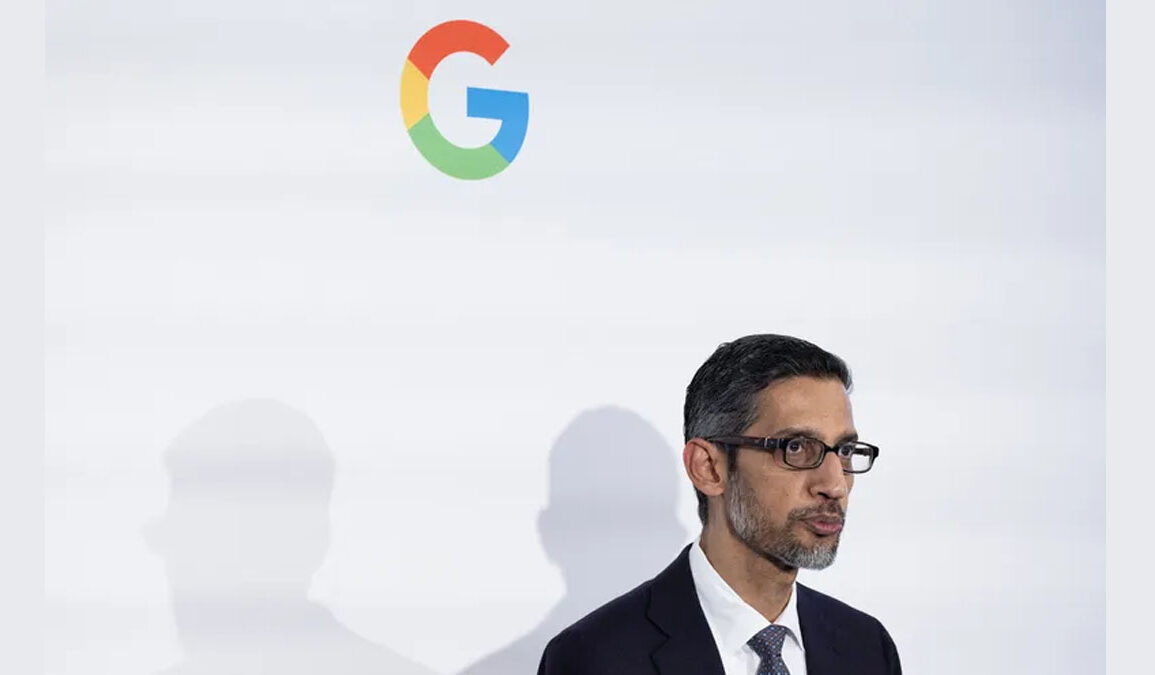In a landmark decision, a federal judge has ruled that Google violated U.S. antitrust laws by using its dominance in online advertising technology to crush competition and control the digital ad marketplace. This ruling adds to a growing list of legal challenges the tech giant is facing and could lead to major changes in how it does business.
Background of the Case
The lawsuit against Google was filed in January 2023 by the U.S. Department of Justice and 17 states. It accused the company of unlawfully maintaining monopolies across several layers of the online advertising system. This system is what allows ads to appear on websites in real time and generates billions of dollars in revenue.
The case focused on how Google operates the tools that help publishers sell ad space and advertisers buy it, along with the software that connects them both. The government said that Google’s control over all parts of this digital supply chain gave it an unfair advantage.
Judge Leonie Brinkema of the U.S. District Court for the Eastern District of Virginia presided over the case. She issued a 115-page ruling on April 17, 2025, saying that Google “violated the Sherman Antitrust Act by willfully acquiring and maintaining monopoly power” in the online advertising market.
What Google Was Accused Of
According to the court, Google used its control over two important ad products—its publisher ad server and ad exchange—to lock publishers into its system. These tools are essential for websites to manage their ad space and connect with buyers.
“For over a decade, Google has tied its publisher ad server and ad exchange together through contractual policies and technological integration,” Judge Brinkema wrote. She explained that this gave Google “a powerful grip over the market” and helped it “entrench its monopoly power.”
The judge also found that Google had eliminated useful product features and imposed harmful rules on customers, all while making it harder for competitors to survive.
The Department of Justice argued during the trial that this conduct hurt not just rival companies but also publishers and consumers. “In addition to depriving rivals of the ability to compete, this exclusionary conduct substantially harmed Google’s publisher customers, the competitive process, and, ultimately, consumers of information on the open web,” Brinkema stated in her ruling.
How Google Maintained Control
Google’s power comes from its ability to control what are often called “the pipes” of the internet advertising world. When a person opens a webpage with an ad slot, Google’s software decides what ad will appear, how much it will cost, and who gets paid. Because Google owns both the system that shows ads (Ad Manager) and the marketplace where ads are bought and sold (AdX), it could shape outcomes in its own favor.
The court pointed to several tactics Google used to keep its lead. One was a tool called “First Look,” which let Google’s exchange have priority access to bid on ad space before others. Another, called “Last Look,” let Google see all other bids before submitting its own. These moves gave Google an unfair edge, as other ad exchanges were blocked from competing on equal terms.
An internal email from Google acknowledged that letting other ad platforms offer real-time bid updates would be a “no-brainer” for improving competition—but also admitted that it would cause Google to lose about 20 percent of its customers.
Later, Google phased out these tools but replaced them with “Unified Pricing Rules,” which restricted how publishers could price their ad space. The court found this also worked to limit competition.
The Scope of the Ruling
The court agreed with the Justice Department that Google held illegal monopoly power in two key markets: publisher ad servers and ad exchanges. However, the judge dismissed the claim that Google had a monopoly in advertiser tools, saying the government had not proven that the advertiser tool market was clearly defined.
Still, this is a major win for regulators. “The court is applying very traditional antitrust principles,” said law professor Herbert Hovenkamp. “I’m not surprised the government won.”
The ruling follows other recent court decisions against Google. In 2024, a judge found that Google had monopolized the search market. In 2023, a jury ruled that its Google Play app store was also an illegal monopoly. Together, these cases could force major changes in how Google operates.
Reactions to the Verdict
Google strongly disagreed with the decision. “We won half of this case and we will appeal the other half,” said Lee-Anne Mulholland, Google’s vice president of regulatory affairs. “Publishers have many options and they choose Google because our ad tech tools are simple, affordable and effective.”
However, Judge Brinkema also suggested that Google’s conduct went beyond simple market dominance. She criticized the company for deleting internal messages and misusing legal privilege to hide evidence. “Google’s systemic disregard of the evidentiary rules regarding spoliation of evidence and its misuse of the attorney-client privilege may well be sanctionable,” she wrote, though she stopped short of issuing penalties at this stage.
U.S. Attorney General Pam Bondi called the ruling a “landmark victory” and added, “This Department of Justice will continue taking bold legal action to protect the American people from encroachments on free speech and free markets by tech companies.”
Sacha Haworth, executive director of the Tech Oversight Project, also praised the outcome. “For years, Google wielded unchecked monopoly power over the digital advertising market,” she said. “This decision is an unequivocal win for the American people.”
What Comes Next
Judge Brinkema has ordered both sides to submit proposals for the next phase of the case. The Justice Department had already requested in its original complaint that Google be forced to sell off parts of its ad tech business. One possible outcome is that the court may force Google to break apart its tools for buying and selling ads.
William Kovacic, a law professor at George Washington University, said the decision could still lead to strong penalties. “The broader the finding of illegality, the greater the platform for a bolder remedy,” he said.
Even if the government does not get a full breakup, Google could still face restrictions on how it prices its services or how it integrates its tools. These types of conduct remedies could still have a major impact on Google’s business model.
Google’s online advertising division brought in $31 billion in 2023, which is about 10 percent of the parent company Alphabet’s total revenue. A forced separation of its ad tools could cut into those earnings and limit the company’s influence over internet advertising.
A Warning to Other Tech Giants
This ruling is part of a larger effort by U.S. regulators to rein in powerful tech companies. The Federal Trade Commission is also pursuing antitrust cases against Meta and Amazon. Apple is facing a lawsuit over its control of the iPhone ecosystem.
President Trump’s administration has continued to push aggressive antitrust enforcement, despite attempts by tech firms to build closer ties with government officials. His appointments to the FTC and DOJ have focused heavily on reducing the power of companies that control online speech, commerce, and data.
This decision against Google may also inspire more lawsuits in other countries. “It will give them confidence to push ahead,” said Kovacic. “And it will lend impetus to other enforcement actions around the world.”
A Turning Point for the Internet Economy
For years, smaller publishers and advertisers have struggled under Google’s dominance. This ruling confirms what many in the industry have long suspected: Google built a closed system that locked out competition and made it harder for others to make a living online.
Lee Hepner, senior legal counsel for the American Economic Liberties Project, said, “Google’s entire business model has allowed it to profit immensely by sucking money out of the journalism industry, the content creation industry, and publishing writ large.”
Now that a court has officially found Google guilty of violating antitrust law, the next steps could reshape the structure of digital advertising—and potentially open the door to a more competitive, fairer internet.








